Why you shouldn’t buy into the junior year hysteria
On the night before my junior year began, my mom and I had a serious conversation in the kitchen about how I would manage the “worst year at St. John’s.”
We mutually decided that, because of my lighter course load and my efficient time management skills, I would be just fine. I handled myself pretty decently throughout the year, despite struggling with physics and investing a significant amount of time in softball.
I’m not the end-all-be-all expert on how to navigate your junior year. In the spring semester, I kept a digital album to document all the times that I broke down in tears because of school.
I am writing this article to offer advice to the juniors and all the future juniors who will, inevitably, hear the same exaggerated horror stories about 11th grade.
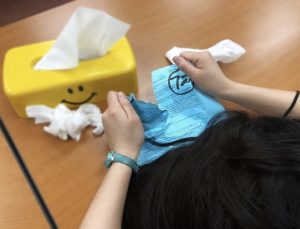
Do not buy into the junior year hysteria.
Yes, junior year will be harder than previous years. Yes, your teachers will expect more from you. Yes, workload will increase. And, yes, with college counseling and sports and bigger roles in theater productions, your time for that workload will decrease.
It might be tempting to dismiss all this added pressure as a necessary symptom of being a junior. If you tell yourself that all your problems, be they academic, social or otherwise, are only occurring because you are a junior, then you are not helping yourself. In fact, you’re likely digging yourself into a pit of despair that you can only climb out of in May when you turn in your last exam.
Rather than blaming your junior year, consider identifying the specific reasons behind your issues, not just some made-up concept that older kids, teachers and maybe even your parents have fed to you for years.
For example: imagine that you aren’t making the grades you want in one of your classes. You feel like you’re paying attention in class and you’re taking proper notes, but somehow you’re still less than satisfied with your report card.
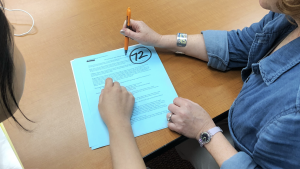
This situation can play out two ways. You can chalk it up to the hysteria and say “my grades will never improve until junior year is over.” Or, you can dive deeper and ask yourself: Do I have a good relationship with my teacher? How is my time management playing into this? Is sitting next to my best friend in the whole entire world and chatting about all of the YouTube drama that’s been happening maybe not the best idea?
From there, you can reach out to the people who are affecting your learning. Once you have honest conversations with yourself, you can have the same conversations with others. Putting multiple, reasonable minds towards a solution is better than wallowing in the problem.
Now, I realize that this is somewhat unrealistic. Sometimes you just want to blame it all on something else, create a photo album called “when you try your best but you don’t succeed” and sob until your face gets sore from frowning, documenting it all with photos of your immense, unsolvable distress.
Reality check yourself on a regular basis. You don’t want to wallow in your self-pity for a whole year when there are so many good things about being an upperclassman that you might miss. As a junior, you get to start thinking about exciting plans for your future, you get more of a say in campus life, you will form new and more mature friendships, your teachers place more trust in your abilities. I could go on.
Being a junior is hard work. My wish for you is to acknowledge that all of your stress and worries are normal and that you are not alone. Most of the time, though, it’s something that you can take steps towards fixing.

Fareen Dhuka is a senior in her fourth year on Review. Her dream vacation is going to Disney World with Laney and she can't stop making overnight oats.

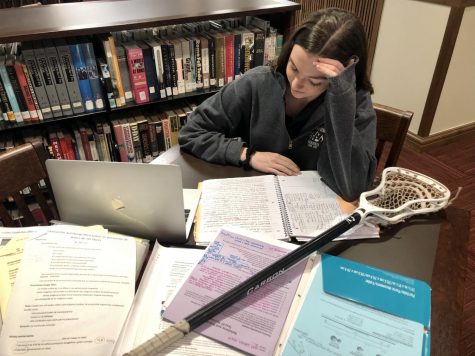


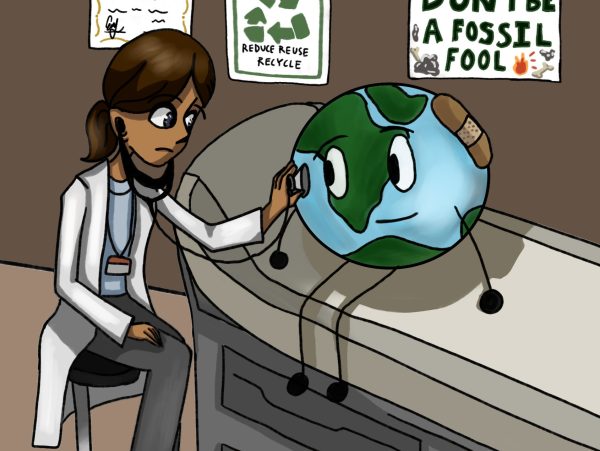

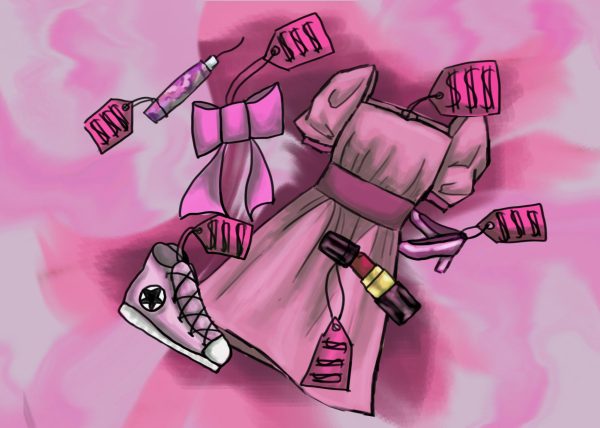












Audra L Parrish • Sep 4, 2019 at 8:16 PM
I love SJ Lasley. Great article. Miss you in Lower School. Best, Ms. Parrish